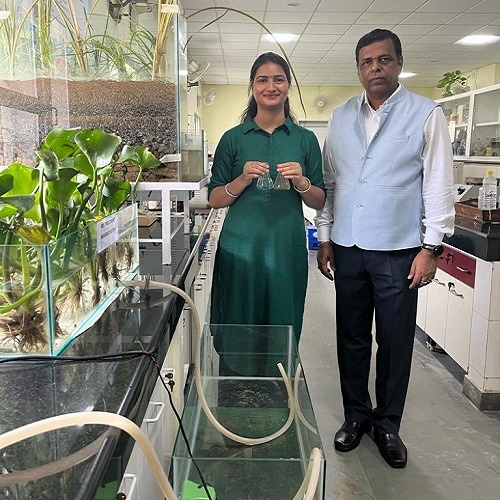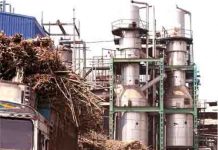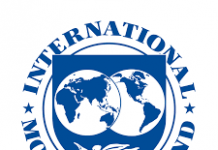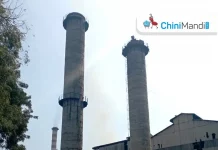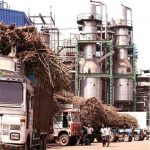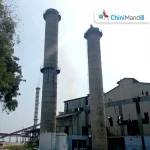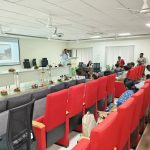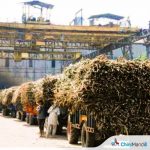National Sugar Institute, Kanpur has succeeded in developing a low cost industrial effluent treatment plant which is an integration of ancient methods of water purification with latest techniques of water treatment. The system named “JAL SAJAG” has been developed by Ms. Neelam Chaturvedi, Research Fellow and Dr. Sudhanshu Mohan, Scientific Officer under the supervision of Prof. Narendra Mohan, Director.
We were working on many technologies for purification of sugar industry waste waters from the last five years so as to develop effluent treatment plants which can sustain variation in the pollution loads and provide treated water as per Central and State Pollution Control Board norms, side by side having low capital and operating expenditure, said Prof. Narendra Mohan, Director, National Sugar Institute, Kanpur.
While the primary treatment is through innovative deep bed filter having sand, gravels and vermiculite with some aquatic plants like Typha & Korai at the upper most layer having ability to remove pollutants, the secondary treatment is based on phytoremediation technique using water hyacinth. To remove colour, suspended solids and some other pollutants still remaining, water from secondary treatment unit is filtered through active bio-char bed developed indigenously using bagasse from sugar factories.
This resulted in removal of pollutants to a greater degree as reflected by the values of Chemical Oxygen Demand (COD), Biological Oxygen Demand (BOD), Total Dissolved Solid Content (TDS) and pH etc. rendering it fit for use as fresh water. Upon passing it further through Reverse Osmosis (RO) system, potable quality of water could be obtained.
We collected effluent samples from twelve sugar factories and conducted these experiments. The COD, BOD and TDS values were observed to be 0-10 ppm, 0.1-0.2 ppm and 28-49 ppm only with no microbial contamination and presence of heavy metals viz. chromium, arsenic, lead and cadmium etc. The treated water developed no smell or taste even after keeping for about three months. To validate the results, the sample of waters were got analysed from other reputed laboratories too, said Ms. Neelam Chaturvedi.
We have tested this waste water treatment system on other effluents too and can be effectively used in food processing and many other industries. However, minor changes may be required looking to the quality of waste water, said Director. The system can also be automated by adopting effluent flow stabilization system and conductivity measurement systems etc., he added.

